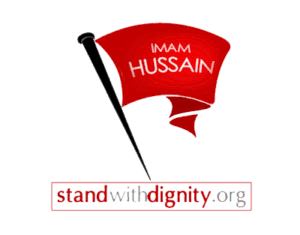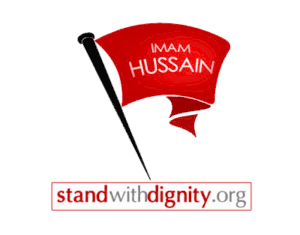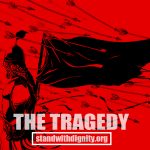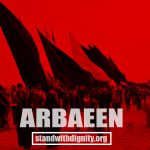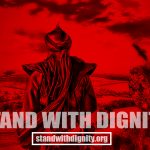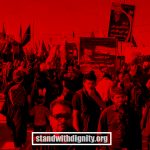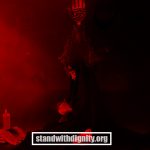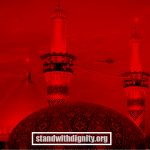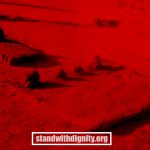By Dr. Peter Chelkowski
Professor of Middle Eastern and Islamic Studies
New York University, N.Y.
Dr. Peter Chelkowski, Ph.D 1968-9 Persian, Tehran;
Postgraduate 1959-1962 History and Islamic Studies, London
M.A. 1958 Oriental Philosophy, Jagiellonian Cracow.
Three years ago, I have said that in Shia Islam, there is a special time which in reality is no time. That is what happened in 61st year of Hijra on the tenth of Muharram, thirteen hundred years ago. What happened is happening every day and is happening today as well. I said in Shia Islam there is time which is no time. What happened in Karbala, can extend to any glace where Shia’s are living. However, today I must say that this extension goes into further, further beyond the Shia community. As my previous speaker, Dr. Manzoor Rizvi mentioned, that the message of Hussain is a Universal Message. It is more universal today than ever before in history. We are facing a certain crisis which was not a crisis many years ago. Couple of weeks ago I was in a funeral. In that funeral one of the fellows said, well, deceased man was a great man. He was always ready to compromise. Today I will like to talk about how one should not go for compromise. That is the message of Hussain. He sets the principles, never go to compromise himself.
There is a proverb, if you cannot beat it then Join it. I want to talk today about how you should not Join and how you should fight for the principles, Syed-dul–Shuhada(The Leader of the Martyrs) Imam Hussain, during his ten years tenure as Imam, after the death of his brother Hasan, had lived in great difficulty under suppression and prosecution. Under the Umayyad government, religious laws lost much of their weight and there was a lot of corruption and spiritual decline. While the caliph in Damascus tried all tricks to ensure the caliphate of his son, Yazid. A man who was lacking in principle and he had no spirituality at all. It was very easy for Imam Hussain to go and compromise and to join instead of fighting. If you can’t beat them, join them in Damascus. In return he would have been very well paid for. But as a matter of principle and that is the principle he should not compromise. It was an ancient tradition among the Arabs; the tradition of paying allegiance known as Bayt. It was an ancient Arab practice. Even if you don’t want to join, just to live in peace, like millions and millions of people all over the world for the sake of living in peace. He could have paid the allegiance or bayt to Muawiyah and later to Yazid and afterward he could carry on his own life. But it was the principle, principle with ancient tradition that once you pay the allegiance or bayt you have to follow it. To break it was considered to be to break you off. And Imam Hussain could not do it.
When Yazid finally became the ruler of Damascus, his order was sent to Medina and he was trying to press Imam Hussain so that he will pay the allegiance. Well, next day the Imam left for Mecca. He knows that in Haram (precinct) of Mecca, he could live for certain duration without being threatened by Yazid. But the agent of Yazid encircled Mecca and they contemplated even in the Haram of Mecca to kill Imam Hussain. There is no question, he was ready to sacrifice himself, and he was ready to die for Islam. But there is a question- question of principle; as a matter of principle he did not want the House of God to be stained by his blood. Even just a few days before Hajj, he was ready to leave and go toward Iraq to Kufa, where from he received many letters of invitations. On his way many people tried to stop him. They knew that he was going to be martyred. He knew that himself, he predicted that, but that was the question again of principle. What we say sometimes, that it is better to die in respect than to live in disgrace. (Better to be standing than kneeling).
On the way to Kufa he got the news that his Ambassador to Kufa was killed. He knew already what was going on in Kufa and other cities of Iraq, he knew it very well, but he made the final decision to go forward, not to return. Now we should realize that there are certain principles in our lives which are not to be compromised. We should always go forward for it. Finally, when the party of his friends and family was surrounded according to available information, by thirty thousand against seventy two. And even then they tried all the pressure so that he will pay allegiance to Yazid. He knew that no way will he kneel before Yazid. He realized that there is difference in his own aptitude, in his own determination, when you decide that you are ready to be martyred, but there is another question. The question of those, who are your companion and your followers. You realize that there will be certain justice to push his companions to the martyrdom. At that time he called his disciples, his followers, his companions, and his relatives at night and said that they (army of Yazid) are after me. Well I decided myself that I am ready to die here for my principles. He knew very well that it was going to be a great religious act, one of the greatest in history. But at the same time, he knew that they were after him and not his companions so at night he said that whoever feels like guarded, who does not feel strong enough may leave.
I am not going to stop you. Convey his massage strongly, he said turn off the lights and in the cover of darkness you can leave. But nobody can be seen in the shade leaving the Imam. How understanding, he understood the human conditions; nevertheless, you have to take into consideration those governing feelings of the Imam and his supporters. He knew that not everyone was ready to die and therefore he gave them a chance. Many left; he repeated that on two occasions. Hussain was a man of great knowledge, of will, wisdom and compassion. He was a man of courage, he was a man of greatness, and he was a man of humanity and generosity at the same time. He showed his gentleness and compassionate to old men. Also, he gave courage to the young people to join him. They did join him. They knew very well that by not joining him they will be humiliated. He invited them to his home, fed them and dressed them well. Somebody asked about their experience, Imam said they are more generous than I am because they have given all they have to give.
On the day of Ashura, he was ready to sacrifice himself into the dust of the plains of Karbala. People witnessed that on his back there were black marks, they enquired. What are these black marks? He replied, that in the city of Medina he used to carry food for the widows, the poor and orphans at night. These are the marks of the load which he carried in Medina. Imam Hussain was questioned about the fast of Ramadhan. He answered, God made fasting arbitrate in order that the rich may feel the taste of hunger and that shall compel them to serve more gently to the poor.
In the ancient Arab tradition, there was a tradition of moral act that was moral values. He was one of the greatest moral character in the history of mankind. Then sources close to Hussain agree that Hussain’s primary motive was not love of power or any statue of such kind; rather, he upheld on comprising the Islamic ideals, the social and political life. He so said in the last speech in the battle field of Karbala, which is translated as below:-
“I have not risen up in revolt out of people’s interest of greed, neither to perpetuate corruption nor wrong-doing, rather I did serve the quest of establishing right order of Islam in the community of my grandfather. I wish to clarify right from wrong, and resolute from what is in-just. Follow the principle of my grandfather and father, Ali Ibne Abi Talib. It may be that they accept me as truth, it is to God, and that they will accept me. If they reject me, I will bear it with peace and submit to God for justice between me and the people, for He is the best of judges”. One may summarize that Hussain guided in the protest against the hunger of the hungers, the poverty of the poor and the oppression of the oppressed.
One day Imam Hussain saw a man who was indulging in gossip again, he said, “Oh man! See your back-biting? Back-biting is the nourishing of gods of the fires.
I am being Christian, being brought up on Christian values, I can really appreciate that very answer Imam said, they are not served. A good deed fell to the righteous as well as to the wicked. Someone asked the question of the prayers. How long should one prayer. He answered, describing the difference of worship, he said there are those who worship God in the inferior health, and it is the best of worship. I can go on and on, however, on the limited time I will recite a poem which have come across one of the Imam Hussain’s prayers an indeed this one is outstanding. This prayer was delivered on the 9th day of Zilhajj and is known as the prayer of “Arafat”. It is long but I will make it short:-
God cause me to fear him as I was seen.
Bless me in my right determination, and
I may do hastening in what thou have hastened,
Nor the delaying of what thou has hastened,
For God appoint me with certainty in my heart,
Sincerity in my action, light in my eyes, longsighted in my vision,
Give the enjoyment; make my hearing, and my seeing true heritage.[1]
[1] Arafat Day Imam Hussain (as) Dua p.10 ‐ www.Duas.org
